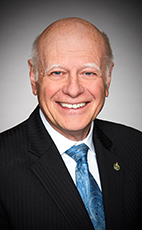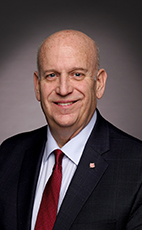44th Parl. 1st Sess.
February 15, 2023 02:00PM
- Feb/15/23 2:20:58 p.m.
- Watch
Mr. Speaker, in honour of Black History Month, I am proud to rise today to speak on three inspirational and influential groups in my community of Newmarket—Aurora. Throughout my time as a member of Parliament, I have witnessed the courage, the resilience and the empowerment the Aurora Black Community Association, the Aurora Black Caucus and the Newmarket African Caribbean Canadian Association have demonstrated to create an inclusive and a safe community. This month is a time to learn, to reflect, to honour and to celebrate the contributions of Black Canadians and organizations who make our communities a safer place to live. I want to thank them for their ongoing contributions to our community and for enacting real and permanent change in Newmarket—Aurora.
126 words
All Topics
- Hear!
- Rabble!
- add
- star_border
- share
- Feb/15/23 3:00:34 p.m.
- Watch
Mr. Speaker, the rifts in the Liberal caucus over Bill C‑13 are—
15 words
- Hear!
- Rabble!
- add
- star_border
- share
Mr. Speaker, the rifts in the Liberal caucus over Bill C‑13 are playing out like a musical. Tensions between the different gangs escalate from one day to the next. It is a real West Island story.
Yesterday, the member for Mount Royal broke ranks and announced he would vote against Bill C‑13 if it mentions the Charter of the French Language in any way.
Today, in a dramatic turn of events, a Liberal minister from the West Island also threatened to vote nay. A Liberal minister opposing a Liberal bill, that makes for good theatre, but will the minister responsible call them to order—
109 words
- Hear!
- Rabble!
- add
- star_border
- share
Mr. Speaker, I would say that it has been one of the challenges. We have heard of people calling Veterans Affairs looking for services and being recommended to consider MAID as an option. Therefore, I do not think it is reasonable to say that it does not happen, and this is the challenge when we do not have the proper safeguards.
As I said before, it is about safeguards, and our caucus varies across the board in terms of where we are at on this. I personally never supported MAID, but I understand that, in irremediable situations where there is pain and imminent death, there may be choices. However, I am very concerned that people who are down on their luck, having a hard time or concerned about being a burden to society could consider a permanent solution to a temporary problem.
142 words
- Hear!
- Rabble!
- add
- star_border
- share
Madam Speaker, I would like to once again express my appreciation for the hon. member for Longueuil—Charles-LeMoyne, the sponsor of Bill C-224. I want to acknowledge the work that was done with the co-operation of all parties. That happens every once in a while, and when it does, we see just how well it works. I want to point that out so we do not forget. When we work together, it can lead to great results.
There was no consensus on Bill C-224 at first. Members will recall that, when we received the first version of this bill, the Bloc Québécois had concerns about it. Those concerns were related to strong beliefs that we hold and that are integral to our political involvement. We felt that the original bill interfered in the jurisdictions of the provinces and Quebec.
It was therefore difficult for us to readily support this bill, which is otherwise good. We cannot be against trying to improve our firefighters' living and working conditions, as well as their health and safety. I think that everyone agreed on that, but we had that one concern.
It did not take long for us to sense an opening for discussion. We appreciated it. That opening, evident from the start, meant that we were much more favourable to the bill moving forward.
By chance, I had the opportunity to replace my colleague from Mirabel on the Standing Committee on Health the day that the member for Longueuil—Saint‑Hubert came to speak in support of his bill. There were firefighters in the room. There were also members who had been firefighters in a past life, which resulted in testimony that was actually quite moving. Those who were there will remember.
Several firefighters from my region, Drummond, later contacted me to say how much that meeting meant to them. I am not talking about the fact that I spoke, but rather about all of the testimony given that day.
I know that my colleague from Longueuil—Charles‑LeMoyne has already heard this, but I am going to talk about when I was a firefighter. People might think it is Capitaine Bonhomme speaking, but it is not.
Many boys dream of being a police officer or a firefighter when they grow up. My dreams were different. My dream was to be a radio host, which I ended up doing eventually. On the way there, I also worked on boats. I worked as a sailor. As part of our training, we had to learn how to respond to incidents, such as fires on board and whatnot. I had only a vague, abstract notion of what firefighters did, but they shipped me off for a weekend at a firefighters' training centre. They dressed me up in the gear, which weighs a ton. Then they put me in a container they were about to set on fire and told me to figure it out.
That is not exactly how it happened. I did get some safety instructions, which I did not really listen to, unfortunately. The point is, that day was a revelation, a shock. I realized that there was more to the job than what boys of my generation thought. It was more than driving around in trucks blasting sirens and getting cats out of trees. There were huge responsibilities. These people face major risks every day on the job.
That changed how I viewed the profession. Since that day, even though I did not have to carry out those duties as part of my job at the time, I nevertheless did retain a deep admiration for firefighting, which is a vocation rather than a profession, in my opinion.
It was therefore an honour to attend the committee meeting where we discussed Bill C‑244. As a result, I remained interested in this bill. I followed it at a distance because, as I stated earlier, the member for Mirabel was more involved in this file.
I was also pleased to see the Bloc Québécois caucus change its position to support this bill and to realize that our concerns about the bill were being addressed. It is still not perfect, but I believe that what was most important to us was to ensure we were putting in place something that would better protect those who are called on to protect us. I believe that the outcome is pretty good.
As I was saying, I think there may still be other things that could be done. I think the bill is a very good starting point and a very good demonstration of the House of Commons' willingness to ensure that firefighters across Quebec and Canada feel supported and know that we are concerned about their safety.
I think the federal government could do more without encroaching on Quebec and provincial jurisdictions. For example, it could better fund research on the treatment, diagnosis and prevention of cancers, as well as on carcinogenic materials. Perhaps the federal government could make its own list of recognized cancers for its memorial grant program for first responders. It could also increase funding for municipal emergency preparedness infrastructure.
After I attended that committee meeting, I was approached by a firefighter from Drummondville, Marco Héroux. I asked him for permission to speak a little bit about the meeting we had recently at my constituency office. Mr. Héroux is a career firefighter. He has been working in Drummondville for several years and has had a number of work-related health challenges. Some of these challenges relate to certain traumas associated with firefighting work. These people witness trauma on a daily basis. It is hard for us to imagine the extent of what these individuals have to deal with in their line of work.
Mr. Héroux also had concerns about safety in fire stations. We talked about that at length as Bill C-224 was being developed. We talked about things like materials, clothing and fumes inside the fire stations themselves. We talked about how some municipalities are unable to renovate stations and install ventilation systems and protections to ensure that firefighters, who spend so much time at the fire stations, are not in contact with contaminants. This requires huge investments by municipalities, and it can be hard for them to respond to this emergency situation. It is an emergency for the health of firefighters.
The federal government could invest more in municipal infrastructure to ensure that fire stations are equipped with cutting edge ventilation systems that are beyond reproach to keep our firefighters safe and limit their exposure to cancer risks that are just as significant inside the fire station when they are not even doing responding work.
Obviously, some of the concerns I am raising may be outside the scope of the bill, but these are steps the federal government could certainly take to further improve the situation for firefighters and address their concerns over their health and safety.
I cannot help but come back to the issue of health transfers because it is such a topical issue. I think the Bloc has been tirelessly calling on the federal government to increase health transfers for many months, even years. An agreement between the federal government and the provinces seems to be coming together.
We are saying that that is not enough, that more was needed. Imagine what could have been done in terms of prevention and the implementation of mechanisms and research tools for cancer and cancer treatment. Health transfers could be used for all those things too. Those are the types of things that are missing because of the lack of funding for health care. We also need to invest to respond to these types of requests. Funding is not just needed to reduce overcrowding in emergency rooms. It is needed for many things, and I think this is a good example of why the government needs to increase health transfers.
I want to reiterate that I am pleased to see that this bill is going to be passed. I think that it is an important bill that has been long awaited by firefighters in Quebec and Canada. We can do more work on it as needs arise. I am pleased that the bill will be passed as a result of the co-operative efforts among the parties. The Bloc Québécois will enthusiastically support this bill.
1426 words
All Topics
- Hear!
- Rabble!
- add
- star_border
- share





